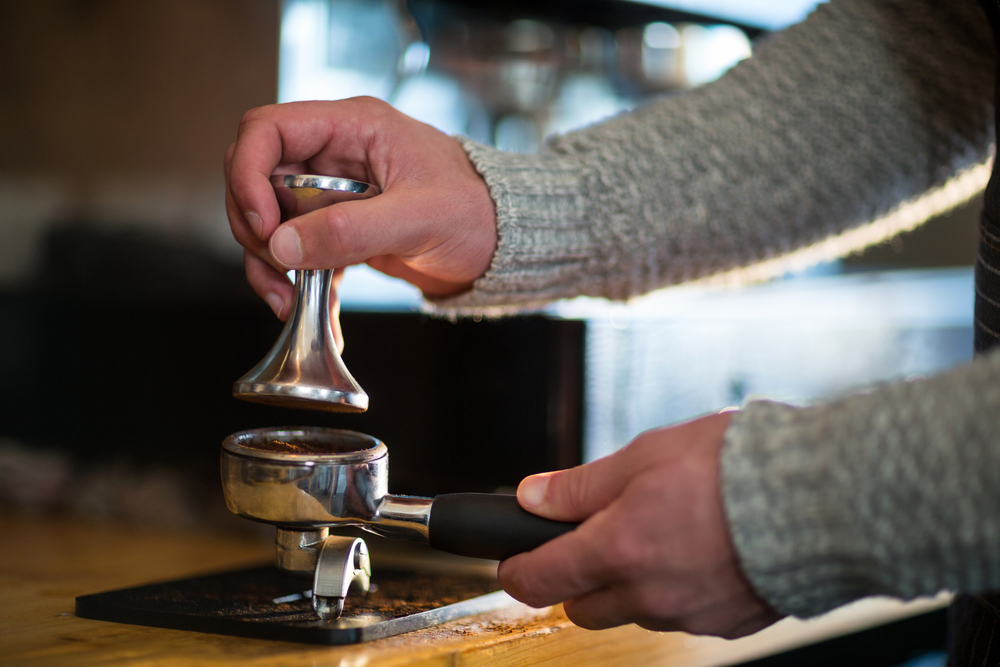When You Drink Coffee Matters
Many people like to begin their day with a cup of coffee. For some, that is all they need. Others will continue to consume the popular beverage...
Manage your everyday finances with convenient accounts, flexible cards, and personalized service designed to fit your life.
At First Federal Bank, we offer flexible mortgage solutions for almost any situation, helping you secure the right financing for your dream home.
Business banking offers secure financial management, streamlined transactions, credit options, and tools to help businesses grow efficiently and sustainably.
2 min read
First Federal Bank : July 21, 2025 10:00:00 AM EDT

 You probably recognize coffee's ability to give you a boost. But what about your garden? Coffee grounds can be beneficial to plants when used in small amounts. As a soil amendment, they feed beneficial microbes that release substances that can improve soil condition. Coffee grounds can also be used as a mulch on the soil surface. However, they're not a reliable method for keeping pests away, or acidifying, or fertilizing soil.
You probably recognize coffee's ability to give you a boost. But what about your garden? Coffee grounds can be beneficial to plants when used in small amounts. As a soil amendment, they feed beneficial microbes that release substances that can improve soil condition. Coffee grounds can also be used as a mulch on the soil surface. However, they're not a reliable method for keeping pests away, or acidifying, or fertilizing soil.
How to Use Coffee Grounds in the Garden
Coffee grounds haven't been shown to repel pests, but the caffeine in brewed coffee could help protect your plants. In studies, a 2% caffeine solution killed slugs and snails. You can make a soil drench to manage these pests by combining one part water with two parts strong coffee, or spray plant leaves with a solution of nine parts water to one part coffee.
Risks of Using Coffee Grounds Incorrectly
While adding a bit of coffee grounds to your garden soil is unlikely to cause problems, there are some potential issues to avoid. Allow freshly brewed coffee grounds to cool completely before adding them to your compost pile or garden soil, as very hot grounds could kill off beneficial microbes.
Don't rely on coffee grounds to consistently acidify soil or as the only source of nutrients you're adding. Their pH isn't consistently acidic, and they contain only small amounts of nitrogen and plant micronutrients, which aren't adequate to fertilize heavy feeders like tomatoes, peppers, corn, and other garden crops.
It's also possible that the small amount of caffeine left in coffee grounds could prevent some seeds from germinating or slow down plant growth.
If you do choose to use coffee grounds in your garden, use them sparingly to avoid harming plants or damaging the soil. To use coffee grounds as a soil amendment, work up to a half-inch of coffee grounds into the top 4 inches of garden soil.
If you decide to leave the coffee grounds on top of the soil surface as a mulch, add a few inches of another organic mulch like shredded leaves or salt hay. This can keep the grounds moist, allowing them to absorb rather than repel water.
Plants That Like Coffee Grounds vs. Plants That Don’t
When used sparingly, coffee grounds can be added to garden beds or containers for just about any plant. There's a persistent myth that, because coffee is relatively acidic, adding coffee grounds to the soil of acid-loving plants like blueberries, rhododendrons, gardenias, blue hydrangeas, and azaleas isn't a reliable way to lower soil pH.
That's because the pH of coffee grounds can vary widely and changes over time. Instead, use high-nitrogen commercial fertilizers created specifically for boosting soil acidity. You can still use coffee grounds in or on the soil around these plants as a mulch or soil amendment, but don't trust it t lower soil pH alone.
For some Frequently Asked Questions, read the full article here.
So next time you are preparing to toss the day's coffee grounds, think about whether or not they might still have something to offer.

Many people like to begin their day with a cup of coffee. For some, that is all they need. Others will continue to consume the popular beverage...

Chances are you spend a great deal of your time sitting. Whether it is during the work day or on our personal time, many of us are in a chair for...
%2c%20common%20in%20Illinois%20and%20elsewhere%20in%20the%20central%20United%20States%2c%20in%20August.jpeg)
Perennials bloom year after year, bringing color to your garden every spring and summer. Native plants provide essential food and shelter for native...
Manage your accounts, make payments, and more.
Open an account with us.